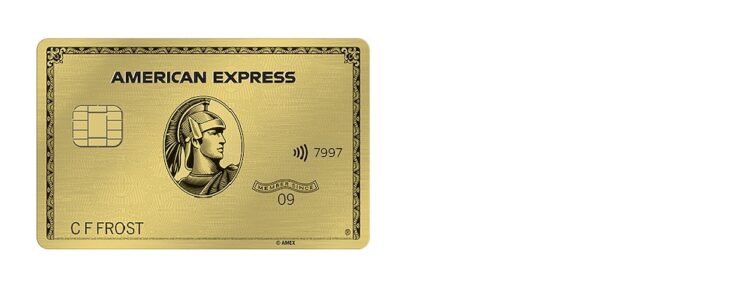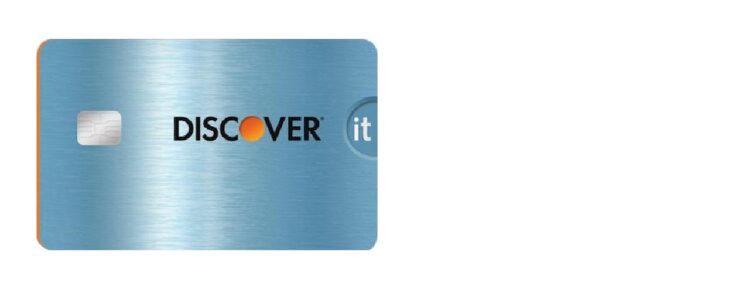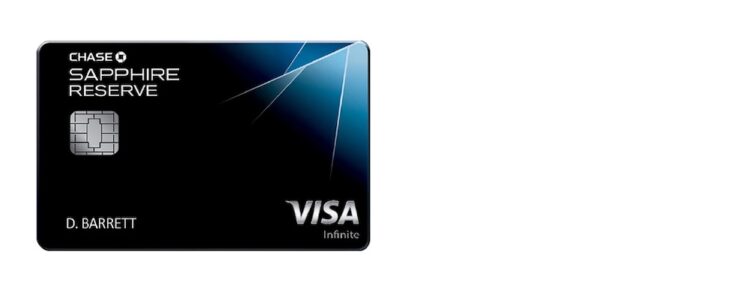Every day, consumers are bombarded with credit card offers promising big rewards if they “apply today.” From offers in our mailboxes, e-mail, and even banner ads, it’s impossible to ignore the barrage of advertising and find the best credit card offers.
One credit card offers 50,000 miles while another offers 60,000 “points” if cardholders meet a spending goal. Others claim to have a low interest rate for balance transfers, some offer incentives when shopping at certain stores, and credit card offers in the mail offer generous rewards but “for a limited time.”
If you’ve ever wondered how to choose the best credit card, you aren’t alone. Weeding out the best cards for your lifestyle can be a difficult task. When it comes time to start shopping for the right card, finding the right fit is all about achieving your financial goals.
Which Credit Card Should I Get?
Picking the perfect credit card is all about setting priorities and optimizing spending habits. Before looking at offers, it’s important to determine why you are ready for a new credit card. Start your search by asking these common questions about your situation:
Need to Increase Your Credit Score?
Although the credit check can drop your credit score a few points, successfully opening a new credit line can increase your score and improve your credit picture.
Want to Pay Back Large Purchases Over Time (Without Interest)?
Some stores and credit cards offer promotional interest rates, giving you plenty of time to pay off major purchases.
Looking to Pay off Credit Card Debt by Transferring Your Balance?
Cards with balance transfer promotions allow you to move debt from cards with higher interest rates. This can help you pay them off faster.
Hoping to Get Travel Perks and Credits?
Credit cards for travel offer frequent flyer miles, hotel points, or flexible points that can turn into free flights or hotel rooms at your favorite destinations.
Want Cash Back Rewards for Everyday Purchases?
Credit cards with cash back offers can give you an easy-to-understand bonus every time you take it out of your wallet.
Once you’ve identified your goals, it’s time to find the best credit card offers.
Choose the Best Credit Card in 3 Steps
As you prepare to start shopping for the best credit card offers, information about your own credit can help determine path forward. Following these three steps can help you pick the right card for you.
1. Check Your Credit
Your credit score is much more than a number. Based on what’s on your credit report with the three credit bureaus (Equifax, Experian and TransUnion), it can be the key to getting approved for the perfect credit card. If you have a credit score of 750 or more, you are more likely to be approved for premium credit cards. If your credit score is 700 or less, your choices may be more limited.
2. Understand Important Credit Card Terms
As you start shopping for credit cards, start by looking at the fine print. Although promises of big rewards and cash back are nice, the terms and conditions will help you understand how much those rewards could cost.
Variable APR vs Fixed APR
Cards with a variable annual percentage rate (or APR) can change the interest rate based on the prime rate. The interest rate on a card with a variable APR can increase or decrease without warning, while a card with a fixed APR will stay locked in, and the credit card issuer must inform you if it changes.
Annual fees
Most reward credit cards (including airline frequent flyer cards and hotel cards) have an annual fee. This can range from $95 for common airline cards to over $600 for premium credit cards.
Payment cycles
Not only do payment cycles determine when your minimum payment is due, but they also determine how long it takes for new balances to start accumulating credit card interest. Be sure to plan your payment date around your budget and always pay more than the minimum due - or better yet, your entire balance - to prevent additional charges.
Credit Limit
Although your total credit limit is determined when you apply, some cards have a minimum to start. For example: Visa Platinum cards have a minimum credit limit of $500 while Visa Signature cards have a minimum credit limit of $5,000.
Redeeming Your Perks
Every rewards program is different, so it’s important to understand how to get your bonuses. While cash back credit cards often offer rewards in statement credits, airline miles and hotel points can only be redeemed with the card’s co-brand. For example: If you hold a United Airlines credit card, the miles you earn can only be used for flights and rewards through United.
3. Shop Around for the Best Credit Card Offers
It’s absolutely okay to shop around for the best credit card offers, but it’s important to be prudent about how and when to apply. Different banks have rules about who can apply/receive approval for credit, based on their history.
Attempting to open multiple credit cards at once can result in multiple denials due to suspicious activity. In fact, some banks, such as Chase, have a “5/24” rule: If you’re approved for five credit cards in 24 months, your application for a new credit card will be denied.
How to Compare Credit Card Offers
After receiving your credit score and doing some research, you’ve narrowed your choices down to several different cards. It’s time to compare credit card offers to see which one best fits your needs. Here’s what you should consider as you start eliminating the choices:
1. Determine the Type of Card You Want
In addition to points, airline credit cards often offer checked bags and priority boarding, while hotel credit cards usually come with free status and bonus offers. If you don’t want to be stuck with one brand, consider a generic points earning card, where you can choose your own rewards or transfer the points to another loyalty program. If none of these options are appealing, cash-back cards always offer consistent and straightforward rewards.
2. Examine the Introductory Offer
Introductory offers vary between cards. If you choose a points, airline, hotel, or cash-back credit card, you’ll receive your introductory offer after spending enough money within a certain amount of time. Balance transfer cards offer an introductory APR on the debt you move, but shift to the regular APR if you don’t pay it off before the intro period ends.
If you can’t pay off the introductory offer, you will end up losing money on the points from interest. Be sure you can afford the spending requirements – or pay off the transferred balance in time – to see maximum benefits.
3. Review the Fees
While credit cards offer points and benefits, most rewards cards also come with annual fees. Be sure you’re comfortable with – and can afford – the annual fee before applying. If you are paying interest on your annual fee, your points and miles will take on a negative value.
4. Understand the Rewards System and Redeeming Perks
For the uninitiated, redeeming airline miles and hotel points can be complicated. In addition, some hotel cards require you to use them on property to receive all the benefits. Before you apply, be confident in the points and benefits you’re receiving. 50,000 airline miles have no value if you can’t use them!
5. Triple Check Your Eligibility
Some credit cards have strict requirements on who can receive the benefits. For instance, if you apply for any Chase Sapphire card, you can’t get another new cardmember bonus unless you haven’t had a Chase Sapphire in the past four-year period. Before submitting your application, triple check that you have a good enough credit score to qualify for the card (and that you’re also eligible for the bonus).
6. Read the Fine Print
Credit card benefits are only as good as their limitations. Before settling, read the credit card terms, conditions, and the benefit guide (these are the rules that apply to the card as long as you hold onto it).
What to Consider When Choosing Card Offers
Even if you’re actively shopping for the best credit card offers, there are potential pitfalls that can get in your way. These are some of the most common situations you will run into while shopping for a new credit card:
Credit Card Offers in the Mail
Unless you’ve opted-out through the credit bureaus, receiving credit card offers in the mail is inevitable. While these ads create a sense of urgency with “limited time offers,” they almost never offer the best bonuses.
Instead of following through on a mail offer, cross-check it online to see if it is the best option available. You may be surprised to learn that a better bonus exists through targeted links.
Unfamiliar Credit Card Companies
Unfamiliar credit card companies primarily market through direct mail with promises of desirable minimum credit limits and claims that “everyone gets approved.” These cards almost always come with heavy stipulations like monthly service fees and high annual account fees.
If you’ve never heard of the bank that’s trying to offer you a credit card, do your research before applying. While you may receive immediate approval, it could cost more in the long run to maintain it.
Credit Cards with the Highest Limits
Credit cards with the highest limits are targeted to those with the best credit and affluent lifestyles. While large limits can unlock certain doors, it can also cause trouble if you start running up debt.
Don’t apply for a high-limit credit card unless you are confident that you can both pay off the monthly balance and avoid a high balance. Getting in over your head can result in negative credit scores, accounts going to collections, and even bankruptcy.
Costs to Keep the Credit Card
At the end of the day, you should be getting value out of your credit cards in excess of the annual fee. If you aren’t taking advantage of all the benefits, it may cost more to keep the card after the first year.
While doing research, it’s vital to understand how much it costs to keep the credit card after the first year, and how much money you would save by using all the benefits. If you can’t justify the annual fee, it may not be the best credit card for your lifestyle.
APR after the Introductory Offer Expires
Balance transfer and interest promotion credit cards start with a low APR on purchases or debt you roll over from one card to another. Eventually, that time runs out – and if you didn’t pay off the balance in time, the card interest rate will apply to what’s left of the balance.
If you choose this type of credit card, determine whether you can afford to pay off the balance during the introductory offer time period. If you can’t, you might expose yourself to interest fees that can quickly wipe out the money you saved.
Best Credit Card Offers for 2021
Once you’ve narrowed down what you want most from a credit card (e.g. rewards, balance transfer promos, building your credit file), it’s time to consider the best credit cards. Here are our picks for the best credit card offers of 2021.
Our Top Pick for 2021

Our top all-around credit card pick for 2021 is the American Express® Gold Card. Even with the $250 annual fee, spending on this card can:
- Earn 4X Membership Rewards® points when you dine at restaurants worldwide
- Earn 4X Membership Rewards points at US supermarkets (up to $25,000 per year in purchases, then 1X),
- Earn 3X Membership Rewards points on flights booked directly with airlines or at amextravel.com.
Points can be used with various travel partners or American Express Travel, converted to cash, or redeemed for items and gift cards through the Membership Rewards shopping mall.
Best Cash Back Offers

Our favorite among cash back offers is the Discover it® Cash Back card. Through everyday spending on this card, you can:
- Earn 5% cash back on everyday purchases each quarter (at grocery stores, restaurants, select rideshares, and even online shopping), up to the quarterly maximum when you activate.
- Earn 1% unlimited cash back on all other purchases - automatically.
Discover will also match all the cash back you earn in the first year. Everyone loves double rewards!
Best Credit Card for Travel

You might be asking yourself, “which credit card should I get for travel?” There are plenty of great options, but the best credit card for travel is the Chase Sapphire Reserve. Even though it comes with a high annual fee, you receive a $300 travel credit every year, an intro bonus of 50,000 Ultimate Rewards® points and plenty of ways to earn bonus points.
- Earn 3X points on travel (immediately after earning your $300 credit)
- Earn 3X points on dining at restaurants.
After you reach the intro bonus, you’ll have $750 in travel rewards when redeemed through Chase Ultimate Rewards!
Best Unsecured Credit Cards for Bad Credit
If you’re rebuilding your credit file, we recommend the Credit One Bank® Visa® Credit Card. This is the best unsecured credit card for bad credit because you have the flexibility to choose your own payment date, set up credit limit alerts so you don’t overspend, and still earn 1% cash back rewards on eligible purchases (e.g. gas, groceries, internet, satellite TV).
Best Credit Cards for College Students

The Discover it® Student Cash Back card stands out among credit cards for college students because it rewards you for both responsible credit use and receiving good grades.
- Earn 5% cash back on everyday purchases (like grocery stores, restaurants, gas stations, select rideshares, and online shopping), up to the quarterly maximum when you activate.
- Earn 1% unlimited cash back on all other purchases - automatically.
On top of your cash back, Discover gives you a $20 bonus each school year for earning a 3.0 GPA, for up to five years!
Best Credit Cards for Balance Transfers

Although it doesn’t offer any cash back, miles, or points, the Citi® Diamond Preferred® Card is the best credit card for balance transfers, because of:
- 0% intro APR on balance transfers for 21 months from the date of their first transfer (Note: All transfers must be completed within the first 4 months).
- 0% intro APR on purchases for 12 months from the date of account opening. After that, the variable APR will be between 13.74% and 23.74%, based on your creditworthiness.
Those who want to pay down their current credit card debt without fighting against high interest payments would benefit most from this credit card offer.
Further Reading on Credit Card Offers
- The Top 4 Balance Transfer Credit Cards for 2019
- 5 Credit Cards That Will Pay You Hundreds Just to Sign Up
- The 5 Best Rewards Credit Cards for 2019
Editorial Disclosure
All of the opinions expressed herein are the author's alone, and not those of any bank, brokerage, credit card issuer, lender, insurance company, outside financial institution, or any other entity. This content has not been reviewed, approved or otherwise endorsed by any of the entities included within the post or any other third parties.




